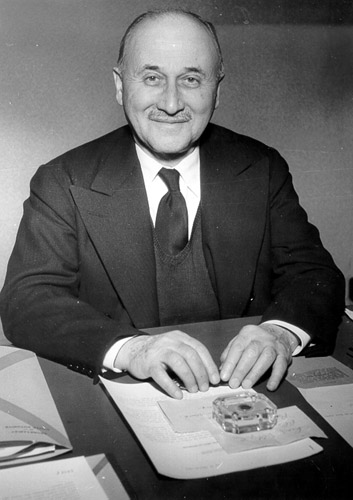A.Y. 2012/2013
The European Module “The European Economic Constitution after the Lisbon Treaty: Undertakings in the new social market economy” has been selected as a Jean Monnet Action under the Lifelong Learning Programme by the Education, Audiovisual and Culture Executive Agency of the European Commission. The course is part of the European action which aims at stimulating teaching, research and reflection in the field of European integration studies at the level of higher education institutions within and outside the European Community.
The main purpose of the project is to analyse the impact of the Lisbon Treaty on the European Economic Constitution, through a new program of studies which explores the interplay between market integration and the European Social Model. Duties, rights and remedies for undertakings in the legal framework of the new social market economy are thoroughly examined.
The course is addressed to students who do not normally come into contact with European integration studies and many of which come from non EU-countries. It is entirely taught in English; students will engage in discussion during classes and write memoranda on the latest developments of EU policies. A website and a periodical newsletter will be delivered. The course is expected to strongly enhance students’ employment opportunities; it will also spread knowledge and awareness with regard to the reforms introduced by the Lisbon Treaty.
The module adopts an innovative method. Teaching activities will be carried on by the professors involved but also through lectures and seminars held by other invited guests, highly specialised in the field. The guest lectures/seminars will give students the chance to have a view different from the one of the ordinary professor of their course. Moreover, lectures will assure a strong role of students, which will be given in advance materials and readings (judgements, legislation as well as doctrine on the most debated issues). Students will be required to take active part to the discussion in class, by analysing cases and materials selected in advance and collected in the syllabus. They will also participate to the management of the website, which will list resources useful for the improvement of the knowledge of the subject matter, such as: bibliography, EU related Journals and Reviews, links to official websites, EU news websites and blogs on EU Issues. To help interaction and discussion inside but also outside of the classroom, students will be assigned to a working group. Each working group (WG) will be of no more than 6 students and will meet before each class to discuss the readings. Each WG will be assigned a topic and it will be in charge of following the latest news in relation to it. The news will be collected by each WG in short memoranda to be published in the website and disseminated by the newsletter.
The course is open to students who hold a three-year Bachelor degree obtained in the areas of economics, finance, languages, business administration and management, engineering, philosophy, history, political sciences, literature and statistics, and have a good knowledge of the English language.
For further information please write to the following addresses:
martina.conticelli@uniroma2.it
msc_eebl@economia.uniroma2.it
A certificate of participation will be issued to students who attend classes and pass a final colloquium.
"Make men work together show them that beyond their differences and
geographical boundaries there lies a common interest."
Jean Monnet

